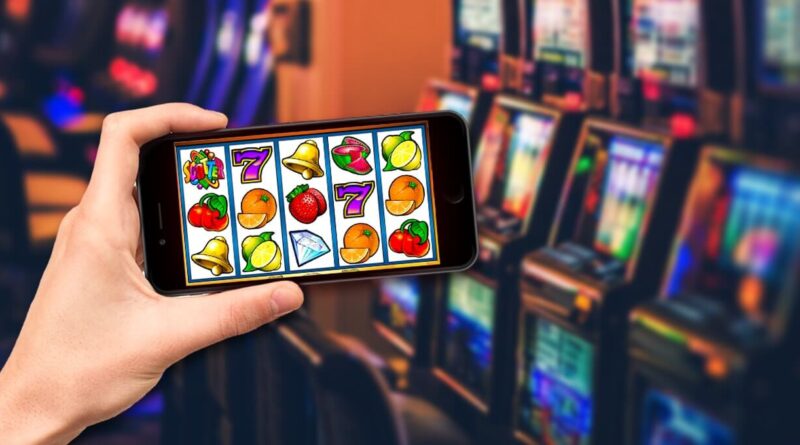Understanding the Skill Behind Poker More Than Just Luck
Poker is often perceived as a game dominated by chance, with many newcomers believing that winning primarily depends on the luck of the draw. However, this perception overlooks the critical role that skill, strategy, and psychological insight play in determining success at the poker table. In reality, poker is a multifaceted game where players must engage in critical thinking, decision-making, and behavioral analysis. This article delves into the various elements that illustrate why poker is much more than just a game of luck.
The Role of Skill in Poker
Skill is a fundamental component of poker that encompasses a wide array of techniques and knowledge. Unlike games that are purely chance-based, such as slots or roulette, poker requires players to develop a deep understanding of the game mechanics, strategies, and their opponents.
1. Understanding Odds and Probabilities
One of the most critical skills in poker is the ability to calculate odds and probabilities. Players must evaluate the likelihood of completing their hands based on the cards they hold and the community cards available. This involves assessing pot odds, which compare the size of the pot to the amount needed to call a bet. By understanding these odds, players can make more informed decisions, increasing their chances of long-term success.
For example, if a player holds a drawing hand, knowing the odds of hitting their needed card can help them determine whether to continue betting or fold. Mastering these calculations enables skilled players to make mathematically sound decisions rather than relying on gut feelings or luck.
2. Strategic Thinking and Adaptability
Poker is a game of strategy, where players must constantly adjust their tactics based on the flow of the game. Skilled players develop strategies that take into account their opponents’ tendencies, betting patterns, and overall table dynamics.
Players must also be adaptable, adjusting their strategies in response to changing circumstances. For instance, if an aggressive player starts raising the pot frequently, a skilled player might choose to tighten their play and wait for stronger hands before engaging. This ability to read the table and adapt one’s strategy is a hallmark of skilled poker players, setting them apart from those who rely solely on luck.
The Psychological Aspect of Poker
The psychological dynamics of poker are equally important in distinguishing skill from luck. Understanding human behavior and using psychological tactics can give players a significant edge over their opponents.
1. Reading Opponents
A crucial skill in poker is the ability to read opponents and interpret their actions. Skilled players pay attention to physical tells, betting patterns, and emotional cues to gauge the strength of their opponents’ hands. For instance, a player who suddenly becomes quiet and passive after a confident bet might be holding a strong hand, while someone who starts betting aggressively may be bluffing.
These insights allow skilled players to make informed decisions that can dramatically affect the outcome of a hand. By contrast, inexperienced players often miss these subtleties, relying on chance rather than understanding their opponents.
2. The Art of Bluffing
Bluffing is an essential strategy in poker that requires a deep understanding of both the game and human psychology. Skilled players know when to bluff and how to execute it convincingly. A successful bluff involves creating a story that aligns with the betting behavior of the player, making it believable that they hold a stronger hand than they actually do.
The decision to bluff must be based on careful analysis of the table dynamics and the players involved. An adept player will recognize the right moments to use this tactic, capitalizing on opponents’ weaknesses and exploiting their doubts.
Experience and Practice
Experience plays a significant role in honing the skills required for success in idn poker 88. As players participate in more games, they gain valuable insights and learn from their mistakes. This experience contributes to their ability to make better decisions under pressure and in high-stakes situations.
1. Learning from Mistakes
Every poker player has faced challenging situations that resulted in losses. However, skilled players view these experiences as learning opportunities. By analyzing their play and understanding where they went wrong, they can refine their strategies and avoid similar pitfalls in the future.
Mistakes can provide insights into opponents’ behaviors and strategies, allowing players to develop counter-strategies. This iterative learning process fosters growth and improvement, distinguishing serious players from casual participants who rely solely on luck.
2. The Importance of Practice
Like any skill, poker requires practice to master. The more players engage with the game, the better they become at recognizing patterns, calculating odds, and executing strategies. Online poker platforms have made it easier than ever for players to practice their skills, compete against a diverse range of opponents, and receive immediate feedback on their decisions.
Regular practice also fosters mental resilience, helping players manage the emotional highs and lows that accompany poker. Building a strong poker mindset allows players to remain calm and focused, even in the face of adversity. While luck certainly plays a role in the short term—after all, you can only play the cards you’re dealt—skill is the defining factor in long-term success in poker. Understanding odds, developing strategies, reading opponents, and learning from experiences all contribute to a player’s ability to thrive in the game. By recognizing poker as a complex blend of skill, psychology, and strategy, players can appreciate the depth of the game beyond mere chance. Ultimately, poker is a challenging pursuit that rewards those who invest the time and effort to develop their skills.




